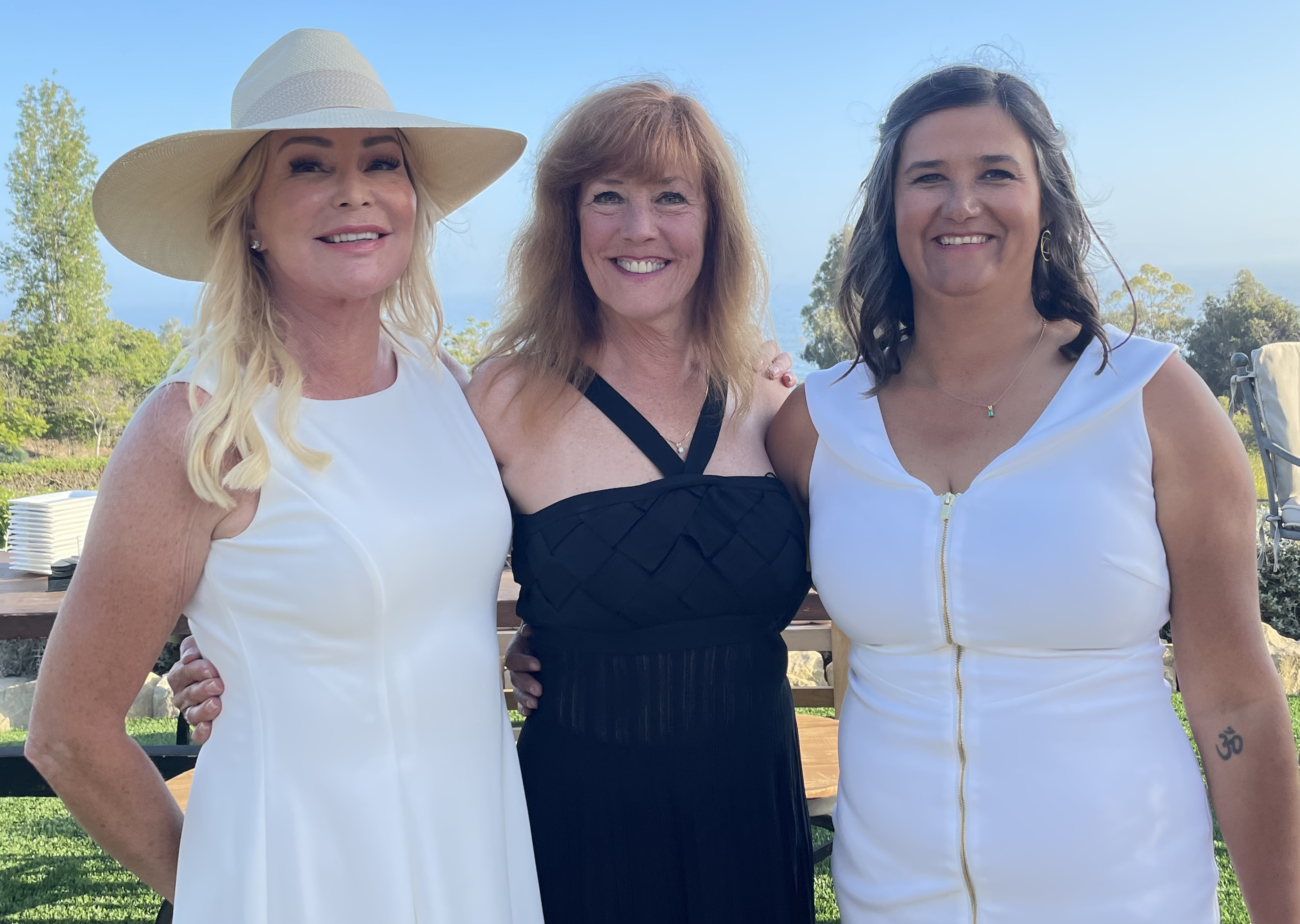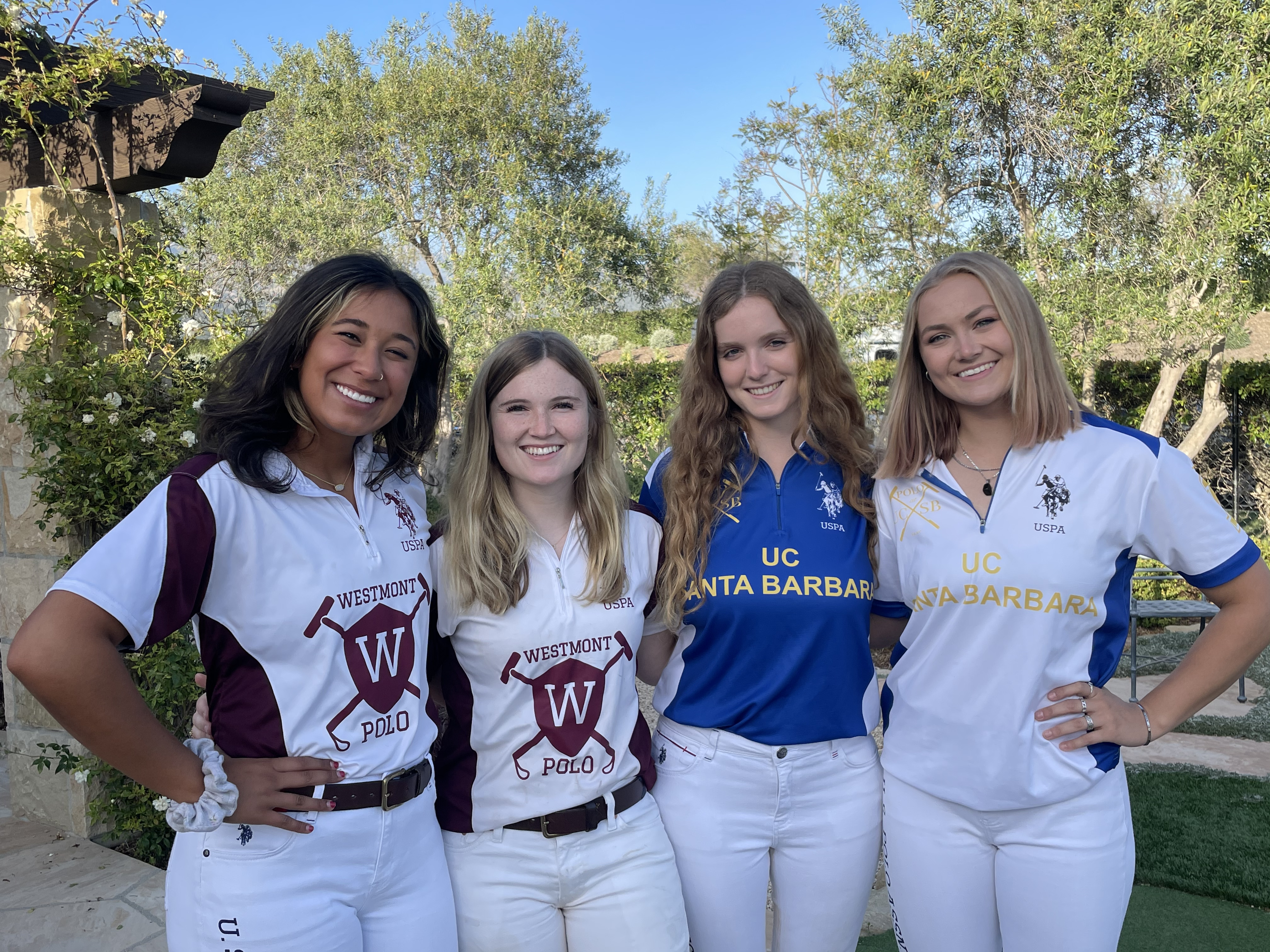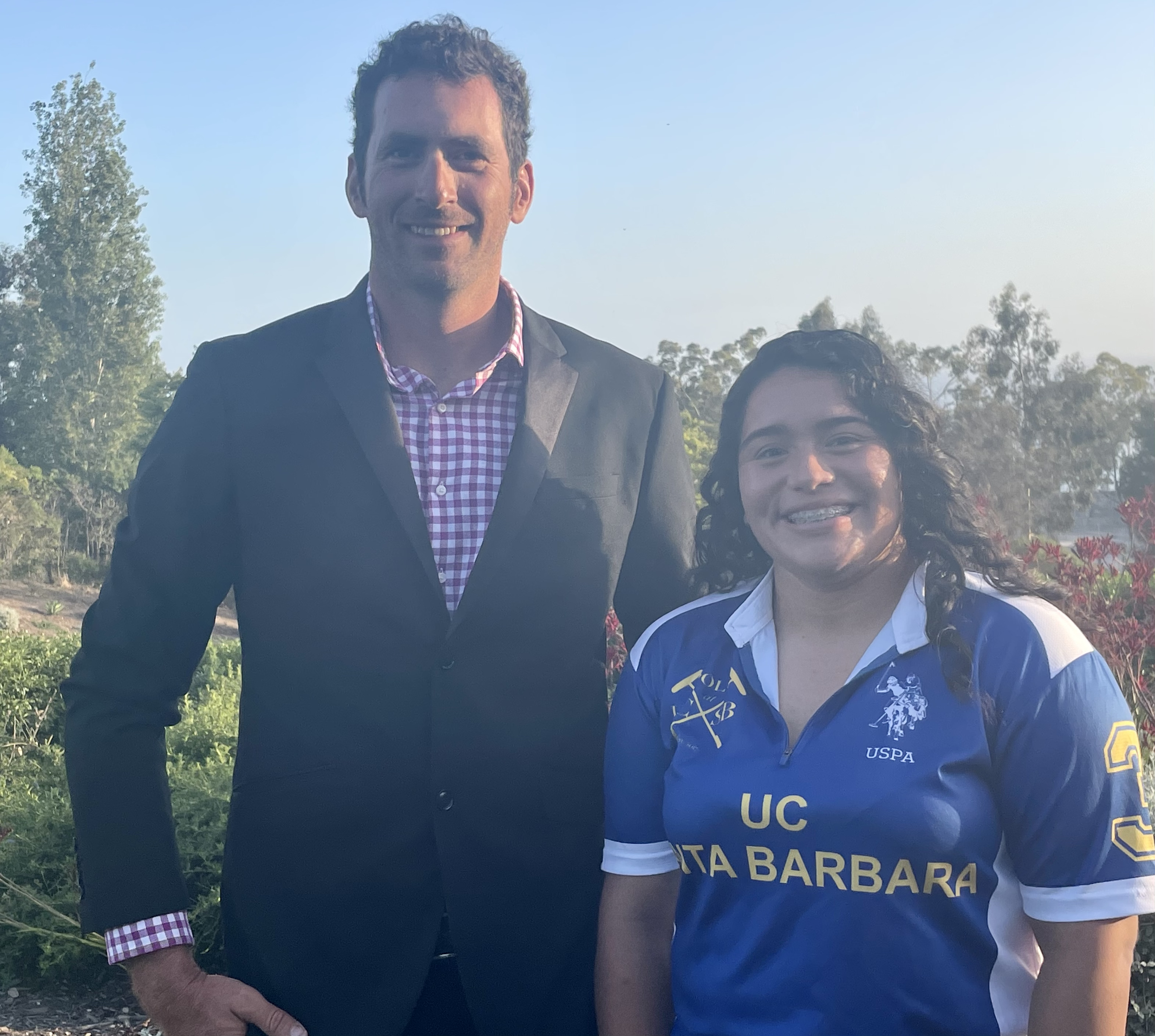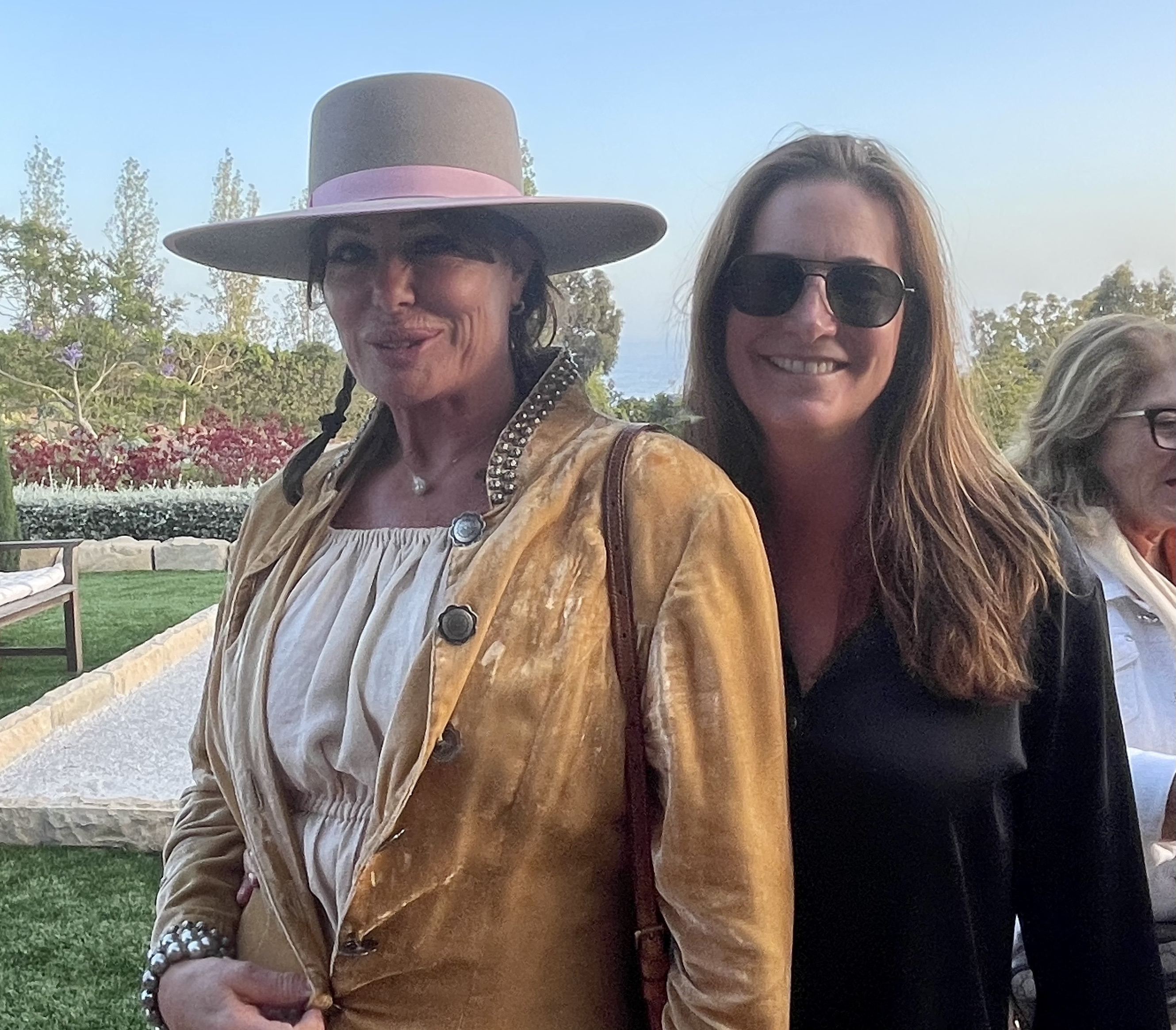Polo Training Center Hosts Fundraiser for Youth Polo
Nonprofit Enables Youth to Participate in Costly Sport

On May 1, the nonprofit Polo Training Center Santa Barbara (PTC) hosted its annual charity dinner party to raise funds for youth participating in polo. About 120 supporters turned out for the fun event at Jeff and Katie Graham’s hilltop estate, near the S.B. Polo & Racquet Club. Professional polo players socialized with guests, while UCSB and Westmont polo team members volunteered and mixed with the crowd too.
Guests enjoyed an extended cocktail reception on the grounds with panoramic ocean views, while Maitland Ward and Jackson Gillies provided upbeat music before dinner and DJ Gavin Roy provided tunes afterwards. Buena Onda prepared a tasty gourmet dinner, and with silent and live auctions, the event netted about $30,000.
The PTC seeks to make polo accessible to youth, according to President Rhys Williams, so that they can then decide if they want to make the significant investment necessary to continue with the sport. The harsh reality, according to Williams, is that polo — the sport of kings — is incredibly expensive. Last year, the PTC raised about $60,000.
Each year, the PTC makes $10,000 worth of grants available to UCSB and Westmont female polo team members (there are no male teams) who apply for funds to cover expenses at the S.B. Polo & Racquet Club’s Polo Academy. According to Academy Director Jeff Sheraga, in the five years he has been at the Academy, he can think of only one student who could have participated if it weren’t for the scholarships. By infecting youth with the love of polo, Sheraga related, the PTC hopes to grow the sport of polo.
In the past five years, only a couple of college students who have come to the Academy had ever played polo before. According to Sheraga, polo is a very difficult and demanding sport requiring much instruction and training. Glen “Jeep” Holden Jr., who played polo for 50 years and whose family founded the PTC about a dozen years ago, shared how the mechanics of playing polo are not intuitive, so having a qualified instructor is of great value, and there aren’t many places that have one. In 2017, when Sheraga became the director, the PTC subsidized his salary until the lessons made the position self-sustaining.
The PTC also funds other expenses at the Polo Academy and in the Interscholastic Program. Some funding goes to the S.B. Pony Club, which provides riding and good horsemanship instruction to youth ages 4-12. The PTC does not make grants on a financial need basis, according to Williams, because of the small, all-volunteer nature of the organization and the difficulty of administering it in that way.
In addition to funding expenses, the PTC runs four youth polo tournaments each summer.
Williams, who has run the entity since 2017 and also serves as Vice President of the S.B. Polo & Racquet Club, took on the role because his daughter was introduced to polo through a PTC summer camp and he saw how the sport brought tremendous joy to her. She went on to play at USC and now leads the equestrian team there.
The Polo Academy itself tries to keep down costs for students through a work trade program, where college team members can do pony-related chores in exchange for lessons, and most in the program participate in this. The Academy does arena polo, which is played in an enclosed area and is much less costly than grass polo because the smaller space means the ponies don’t tire as much, so fewer ponies are required. It receives donated ponies from professional teams when the ponies are past their prime. According to Williams, the Academy gives ponies an enjoyable retirement, treating them in a way you would want to treat your grandparents.
For more info, go to https://www.polotrainingcenter.com.









You must be logged in to post a comment.